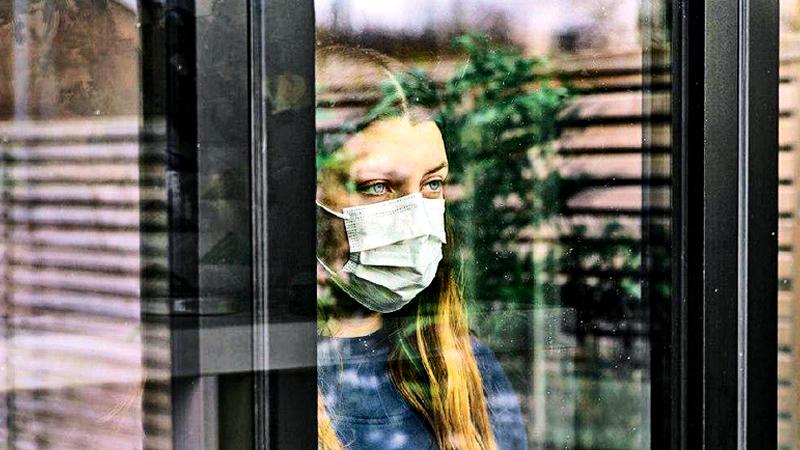
There is nobody on the planet earth, who is exempted from the risk of getting infected with the Covid-19 virus until an exact cure is found. The news on Covid-19 was initially heard from Wuhan, China in the late 2019.
A research conducted in 2020 by Wei Ji and his fellow researchers on “Cross-species transmission of the newly identified coronavirus 2019- nCoV” at the Department of Microbiology, Peking University Health Science Centre School of Basic Medical Sciences, Beijing, China, declared that the Covid-19 virus belongs to the family of the Middle East respiratory syndrome coronavirus (MERS-CoV) and SARS.
Albeit there has been a lot of news on its originality, there is no firm declaration as yet from where the virus has originated. The spread of the virus in some regions has been alarming; North America and Europe in particular where daily multiple of deaths are reported. A research conducted in 2020 by Ren and his team of researchers said that the efforts taken to arrest the gravity of the spread of the Covid-19 pandemic within the communities are being jeopardised by the sheer thought of fright and preconception.
Psychological reactions
It is revealed that as and when an infectious disease begins to threaten the people in a community, the psychological reactions of the people may have a direct impact on the magnitude of the spread of the disease as well as the manifestation and the prevalence of emotional discomfort and social disorder during and after the epidemic.
Steven Taylor in his book of the “The Psychology of Pandemics” states that the resources and funds to reduce and manage the consequences of mental health issues brought out by the pandemic are not sufficient. In an outbreak of a pandemic, generally more resources and funds are allocated on testing, reducing the contraction and the care given to critical patients.
But the psychological and psychiatric needs of the affected and vulnerable parties should not be neglected. A significant role in adherence to public health is played by the psychological factors of the affected parties; in grappling with the fear and the threat of getting infected and subsequent losses. Defensive responses, such as feeling of insecurity and anxiety, emotional distress, such as a condition of mental agony as well as maladaptive behaviour, such as avoiding getting adopted to novel and stressful situations could be considered as psychological reactions to pandemic circumstances.
The people who are diagnosed with psychological issues are particularly vulnerable to get infected.
 Cuiyan Wang and his team of researchers on the “Immediate Psychological Responses and Associated Factors during the Initial Stage of the 2019 Coronavirus Disease (COVID-19) Epidemic among the General Population in China” at the Institute of Cognitive Neuroscience, Faculty of Education, Huaibei University, China, have found out that 54 percent of the respondents, selected from 194 cities in China, in January and February 2020 had the moderate to severe psychological impact of the Covid-19 outbreak.
Cuiyan Wang and his team of researchers on the “Immediate Psychological Responses and Associated Factors during the Initial Stage of the 2019 Coronavirus Disease (COVID-19) Epidemic among the General Population in China” at the Institute of Cognitive Neuroscience, Faculty of Education, Huaibei University, China, have found out that 54 percent of the respondents, selected from 194 cities in China, in January and February 2020 had the moderate to severe psychological impact of the Covid-19 outbreak.
Lower life expectancy
Mark Rodgers and his fellow researchers on “Integrated Care to Address the Physical Health Needs of People with Severe Mental Illness: A Mapping Review of the Recent Evidence on Barriers, Facilitators and Evaluations” stated that even when there is neither epidemic nor pandemic, compared with the general population, people who are diagnosed with established mental diseases are likely to have a relatively lower life expectancy. Consequently, there involves an increased risk of infection with Covid-19 among people with preceding mental health substance use disorders; having issues in testing and treatment.
Li Duan and Gang Zhu of the Department of Psychiatry and Central Laboratory, the first Affiliated Hospital of China Medical University, China said that a considerable increase in depressive symptoms and anxiety among the people who are not identified with preceding mental health conditions may have the potential of undergoing the post-traumatic stress disorder in due course.
The World Health Organization (WHO) foresees that the professionals in the health and social care segments will have risks on the impact of psychological symptoms, most importantly if their work is provided in the areas of emergency departments, primary care, public health, emergency services and critical or intensive care.
In that light, a high consideration should be given to the pre and post psychological complications, experienced due to the Covid-19 virus as long as it remains on the planet earth.
